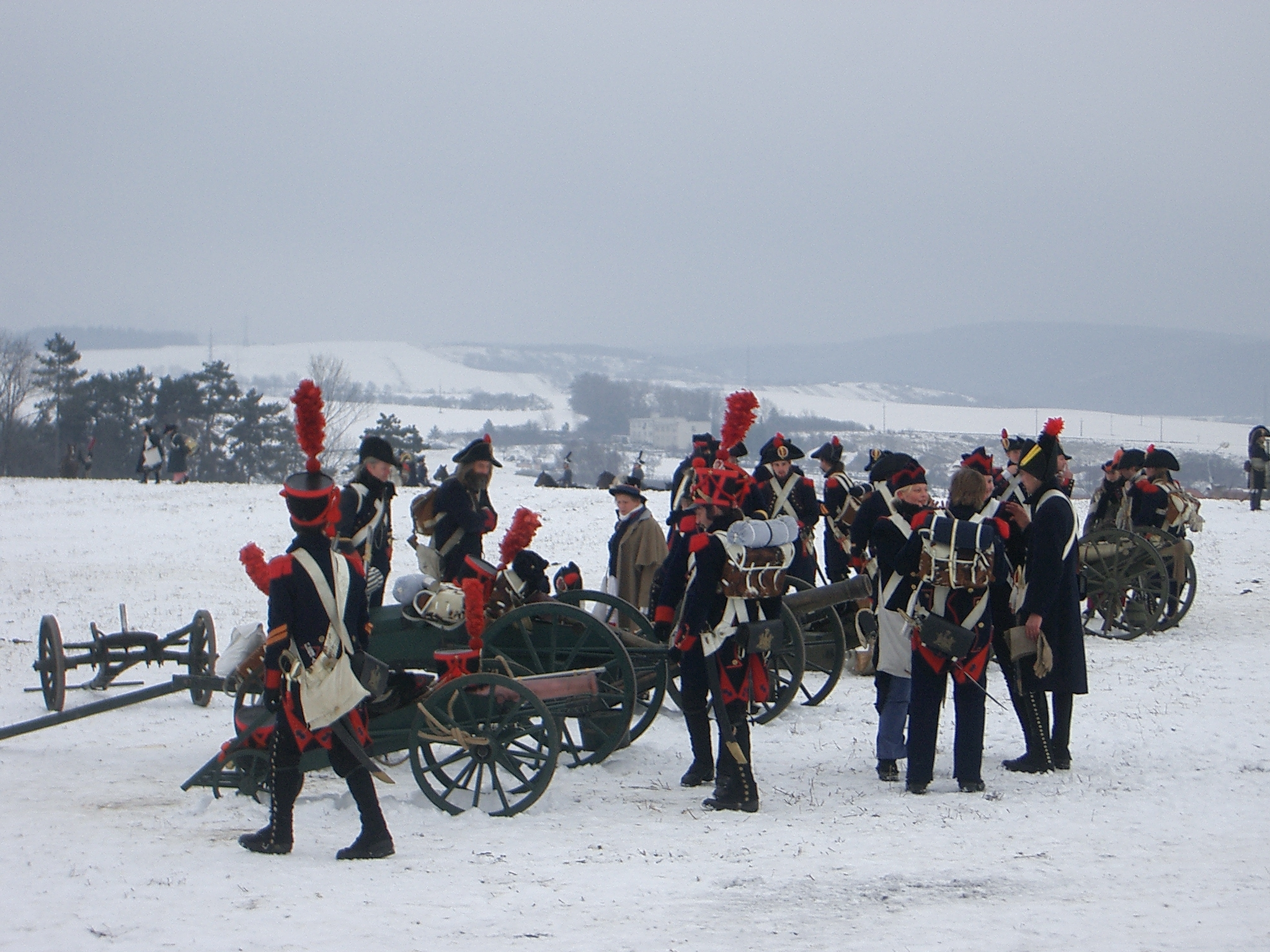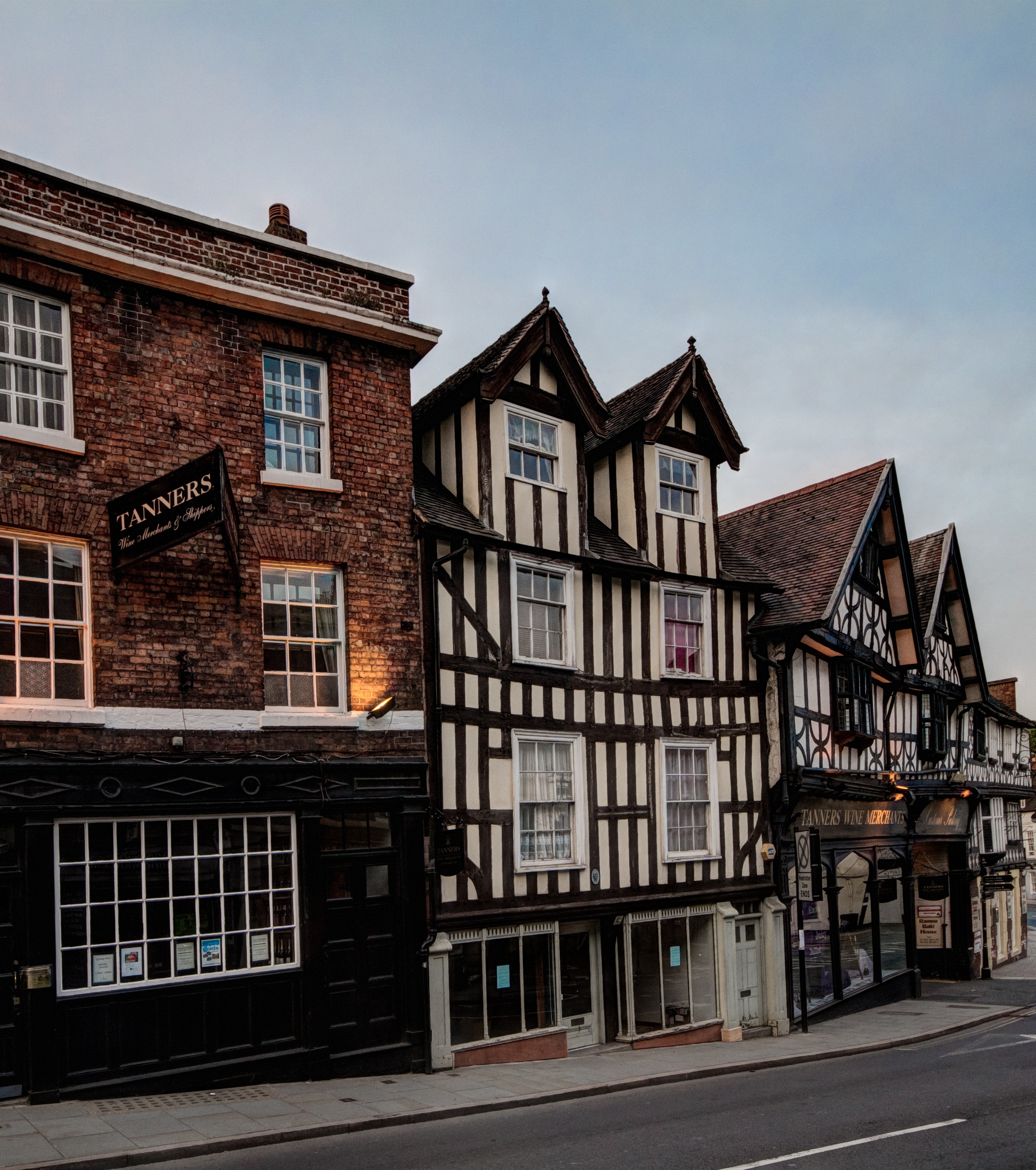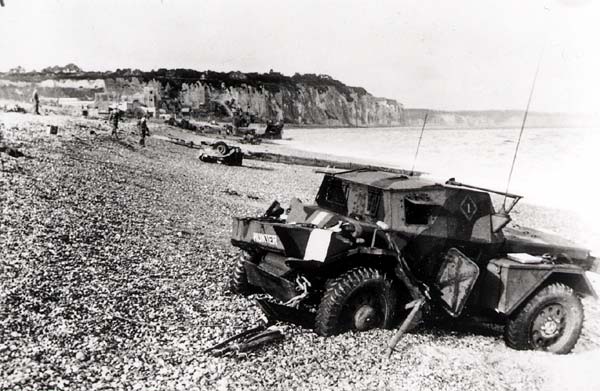|
181st Field Regiment, Royal Artillery
The 181st Field Regiment, Royal Artillery ('The Shropshire Gunners') was a unit of the Royal Artillery, raised by the British Army during World War II. First raised as infantry of the 6th Battalion, King's Shropshire Light Infantry from the Welsh Borders, it was converted to the field artillery role, serving in a Scottish formation in the North West Europe campaign in which it was the first British field artillery regiment to cross the Rhine and Elbe rivers. 6th King's Shropshire Light Infantry In June 1940, shortly after the British Expeditionary Force was evacuated from Dunkirk, the King's Shropshire Light Infantry (KSLI) began forming a new 6th Battalion at its regimental depot at Shrewsbury. A previous 6th (Service) Battalion had been raised as part of Kitchener's Army during the Great War of 1914–18, and the men of the new unit were conscious of its heritage.Frederick, pp. 142–3. The bulk of the men (95 per cent) were recent conscripts, mostly from Shropshire, Herefor ... [...More Info...] [...Related Items...] OR: [Wikipedia] [Google] [Baidu] |
Field Artillery
Field artillery is a category of mobile artillery used to support armies in the field. These weapons are specialized for mobility, tactical proficiency, short range, long range, and extremely long range target engagement. Until the early 20th century, field artillery were also known as foot artillery, for while the guns were pulled by beasts of burden (often horses), the gun crews would usually march on foot, thus providing fire support mainly to the infantry. This was in contrast to horse artillery, whose emphasis on speed while supporting cavalry units necessitated lighter guns and crews riding on horseback. Whereas horse artillery has been superseded by self-propelled artillery, field artillery has survived to this day both in name and mission, albeit with motor vehicles towing the guns (this towed artillery arrangement is often called mobile artillery), carrying the crews and transporting the ammunition. Modern artillery has also advanced to rapidly deployable whee ... [...More Info...] [...Related Items...] OR: [Wikipedia] [Google] [Baidu] |
Infantry
Infantry is a military specialization which engages in ground combat on foot. Infantry generally consists of light infantry, mountain infantry, motorized infantry & mechanized infantry, airborne infantry, air assault infantry, and marine infantry. Although disused in modern times, heavy infantry also commonly made up the bulk of many historic armies. Infantry, cavalry, and artillery have traditionally made up the core of the combat arms professions of various armies, with the infantry almost always comprising the largest portion of these forces. Etymology and terminology In English, use of the term ''infantry'' began about the 1570s, describing soldiers who march and fight on foot. The word derives from Middle French ''infanterie'', from older Italian (also Spanish) ''infanteria'' (foot soldiers too inexperienced for cavalry), from Latin '' īnfāns'' (without speech, newborn, foolish), from which English also gets ''infant''. The individual-soldier te ... [...More Info...] [...Related Items...] OR: [Wikipedia] [Google] [Baidu] |
Shropshire
Shropshire (; alternatively Salop; abbreviated in print only as Shrops; demonym Salopian ) is a landlocked historic county in the West Midlands region of England. It is bordered by Wales to the west and the English counties of Cheshire to the north, Staffordshire to the east, Worcestershire to the southeast, and Herefordshire to the south. A unitary authority of the same name was created in 2009, taking over from the previous county council and five district councils, now governed by Shropshire Council. The borough of Telford and Wrekin has been a separate unitary authority since 1998, but remains part of the ceremonial county. The county's population and economy is centred on five towns: the county town of Shrewsbury, which is culturally and historically important and close to the centre of the county; Telford, which was founded as a new town in the east which was constructed around a number of older towns, most notably Wellington, Dawley and Madeley, which is tod ... [...More Info...] [...Related Items...] OR: [Wikipedia] [Google] [Baidu] |
Conscription In The United Kingdom
In the United Kingdom, military conscription has existed for two periods in modern times. The first was from 1916 to 1920, and the second from 1939 to 1960. The last conscripted soldiers left the service in 1963. It was legally designated as "Military Service" from 1916 to 1920, and as "National Service" from 1939 to 1960. However, between 1939 and 1948, it was often referred to as "War Service" in documents relating to National Insurance and pension provision. First World War Conscription during the First World War began when the British government passed the Military Service Act in January 1916. The act specified that single men aged 18 to 40 years old were liable to be called up for military service unless they were widowed with children, or were ministers of a religion. There was a system of tribunals to adjudicate upon claims for exemption upon the grounds of performing civilian work of national importance, domestic hardship, health, and conscientious objection. The ... [...More Info...] [...Related Items...] OR: [Wikipedia] [Google] [Baidu] |
World War I
World War I (28 July 1914 11 November 1918), often abbreviated as WWI, was List of wars and anthropogenic disasters by death toll, one of the deadliest global conflicts in history. Belligerents included much of Europe, the Russian Empire, the United States, and the Ottoman Empire, with fighting occurring throughout Europe, the Middle East, Africa, the Pacific Ocean, Pacific, and parts of Asia. An estimated 9 million soldiers were killed in combat, plus another 23 million wounded, while 5 million civilians died as a result of military action, hunger, and disease. Millions more died in Genocides in history (World War I through World War II), genocides within the Ottoman Empire and in the Spanish flu, 1918 influenza pandemic, which was exacerbated by the movement of combatants during the war. Prior to 1914, the European great powers were divided between the Triple Entente (comprising French Third Republic, France, Russia, and British Empire, Britain) and the Triple A ... [...More Info...] [...Related Items...] OR: [Wikipedia] [Google] [Baidu] |
Kitchener's Army
The New Army, often referred to as Kitchener's Army or, disparagingly, as Kitchener's Mob, was an (initially) all-volunteer portion of the British Army formed in the United Kingdom from 1914 onwards following the outbreak of hostilities in the First World War in late July 1914. It originated on the recommendation of Herbert Kitchener, then the Secretary of State for War to obtain 500,000 volunteers for the Army. Kitchener's original intention was that these men would be formed into units that would be ready to be put into action in mid-1916, but circumstances dictated the use of these troops before then. The first use in a major action of Kitchener's Army units came at the Battle of Loos (September–October 1915). Origins Contrary to the popular belief that the war would be over by Christmas 1914, Kitchener predicted a long and brutal war. He believed that arrival in Europe of an overwhelming force of new, well-trained and well-led divisions would prove a decisive blow ag ... [...More Info...] [...Related Items...] OR: [Wikipedia] [Google] [Baidu] |
Shrewsbury
Shrewsbury ( , also ) is a market town, civil parish, and the county town of Shropshire, England, on the River Severn, north-west of London; at the 2021 census, it had a population of 76,782. The town's name can be pronounced as either 'Shrowsbury' or 'Shroosbury', the correct pronunciation being a matter of longstanding debate. The town centre has a largely unspoilt medieval street plan and over 660 listed buildings, including several examples of timber framing from the 15th and 16th centuries. Shrewsbury Castle, a red sandstone fortification, and Shrewsbury Abbey, a former Benedictine monastery, were founded in 1074 and 1083 respectively by the Norman Earl of Shrewsbury, Roger de Montgomery. The town is the birthplace of Charles Darwin and is where he spent 27 years of his life. east of the Welsh border, Shrewsbury serves as the commercial centre for Shropshire and mid-Wales, with a retail output of over £299 million per year and light industry and distributi ... [...More Info...] [...Related Items...] OR: [Wikipedia] [Google] [Baidu] |
Dunkirk Evacuation
The Dunkirk evacuation, codenamed Operation Dynamo and also known as the Miracle of Dunkirk, or just Dunkirk, was the evacuation of more than 338,000 Allied soldiers during the Second World War from the beaches and harbour of Dunkirk, in the north of France, between 26 May and 4 June 1940. The operation commenced after large numbers of Belgian, British, and French troops were cut off and surrounded by German troops during the six-week Battle of France. In a speech to the House of Commons, British Prime Minister Winston Churchill called this "a colossal military disaster", saying "the whole root and core and brain of the British Army" had been stranded at Dunkirk and seemed about to perish or be captured. In his " We shall fight on the beaches" speech on 4 June, he hailed their rescue as a "miracle of deliverance". After Germany invaded Poland in September 1939, France and the British Empire declared war on Germany and imposed an economic blockade. The British Expediti ... [...More Info...] [...Related Items...] OR: [Wikipedia] [Google] [Baidu] |
British Expeditionary Force (World War II)
The British Expeditionary Force (BEF) was the name of the contingent of the British Army sent to France in 1939 after Britain and France declared war on Nazi Germany on 3 September, beginning the Second World War. The BEF existed from 2 September 1939 when the BEF GHQ was formed until 31 May 1940, when GHQ closed down and its troops reverted to the command of Home Forces. During the 1930s, the British government had planned to deter war by abolishing the Ten Year Rule and rearming from the very low level of readiness of the early 1930s. The bulk of the extra money went to the Royal Navy and the Royal Air Force but plans were made to re-equip a small number of Army and Territorial Army divisions for service overseas. General Lord Gort was appointed to the command of the BEF on 3 September 1939 and the BEF began moving to France on 4 September 1939. The BEF assembled along the Belgian–French border. The BEF took their post to the left of the French First Army under the c ... [...More Info...] [...Related Items...] OR: [Wikipedia] [Google] [Baidu] |
Rhine
The Rhine ; french: Rhin ; nl, Rijn ; wa, Rén ; li, Rien; rm, label=Sursilvan, Rein, rm, label=Sutsilvan and Surmiran, Ragn, rm, label=Rumantsch Grischun, Vallader and Puter, Rain; it, Reno ; gsw, Rhi(n), including in Alsatian dialect, Alsatian and Low Alemannic German; ksh, label=Ripuarian language, Ripuarian and Low Franconian languages, Low Franconian, Rhing; la, Rhenus ; hu, Rajna . is one of the major List of rivers of Europe, European rivers. The river begins in the Swiss canton of Graubünden in the southeastern Swiss Alps. It forms part of the Swiss-Liechtenstein, Swiss-Austrian border, Swiss-Austrian, Swiss-German border, Swiss-German borders. After that the Rhine defines much of the Franco-German border, after which it flows in a mostly northerly direction through the German Rhineland. Finally in Germany the Rhine turns into a predominantly westerly direction and flows into the Netherlands where it eventually empties into the North Sea. It drains an area of 9,9 ... [...More Info...] [...Related Items...] OR: [Wikipedia] [Google] [Baidu] |
Western Front (World War II)
The Western Front was a European theatre of World War II, military theatre of World War II encompassing Denmark, Norway, Luxembourg, Belgium, Netherlands, the Netherlands, the United Kingdom, France, and Germany. The Italian campaign (World War II), Italian front is considered a separate but related theater. The Western Front's 1944-1945 phase was officially deemed the European Theater of Operations, United States Army, European Theater by the United States, whereas Italy fell under the Mediterranean Theater of Operations, United States Army, Mediterranean Theater along with North Africa. The Western Front was marked by two phases of large-scale combat operations. The first phase saw the capitulation of Luxembourg, Netherlands, Belgium, and France during May and June 1940 after their defeat in the Low Countries and the northern half of France, and continued into an air war between Germany and Britain that climaxed with the Battle of Britain. The second phase consisted of large- ... [...More Info...] [...Related Items...] OR: [Wikipedia] [Google] [Baidu] |
Scotland
Scotland (, ) is a country that is part of the United Kingdom. Covering the northern third of the island of Great Britain, mainland Scotland has a border with England to the southeast and is otherwise surrounded by the Atlantic Ocean to the north and west, the North Sea to the northeast and east, and the Irish Sea to the south. It also contains more than 790 islands, principally in the archipelagos of the Hebrides and the Northern Isles. Most of the population, including the capital Edinburgh, is concentrated in the Central Belt—the plain between the Scottish Highlands and the Southern Uplands—in the Scottish Lowlands. Scotland is divided into 32 administrative subdivisions or local authorities, known as council areas. Glasgow City is the largest council area in terms of population, with Highland being the largest in terms of area. Limited self-governing power, covering matters such as education, social services and roads and transportation, is devolved from the ... [...More Info...] [...Related Items...] OR: [Wikipedia] [Google] [Baidu] |









